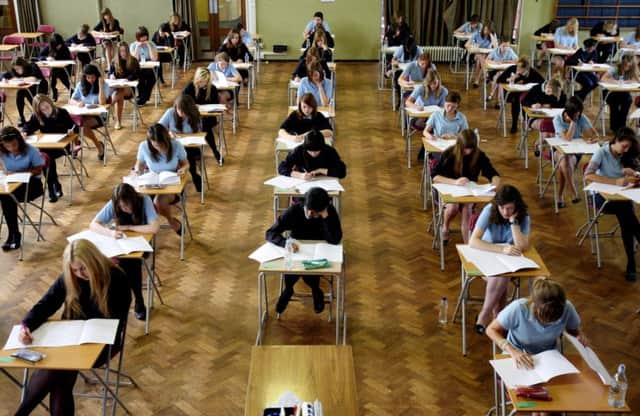Record level of exams regraded after major surge in challenges


Enquiries about results rose by over a fifth, with more than half a million grades challenged, according to figures published by exams regulator Ofqual.
The statistics, for England, Wales and Northern Ireland, come as Ofqual launched a consultation on how to improve marking reviews and appeals.
Advertisement
Hide AdAdvertisement
Hide AdHead teachers in the private and state sectors, who have repeatedly voiced concerns about exam marking, said the rises were cause for concern, with one suggesting the system is “creaking under the strain”.
The latest figures show there were 506,750 challenges about GCSE and A-level results this summer, up 22.2 per cent on last year and more than double the number in 2011.
In total, 90,650 grades were changed - the highest number recorded, up from 77,400 last year, and more than double the number altered five years ago.
Some 62,150 were GCSE grades and 28,500 were A-levels, and 99 per cent of those changed were given a higher result. The number of results changed represents around 1.1 per cent of all grades, an exam chief said.
Advertisement
Hide AdAdvertisement
Hide AdThe figures also show that the most common grade sent back for remarking at GCSE was a grade D, which is likely to reflect the importance placed on pupils getting C grades, while at A-level the most commonly challenged result was a B, which could be due to sixth-formers needing top grades for university places.
Brian Lightman, general secretary of the Association of School and College Leaders, said: “We are very concerned about the rising number of exams which are having to be regraded.
“These results are of critical importance to the future of young people and are a key measure on which schools are judged. We have warned for some time that the marking system is under huge pressure and fear that the increase in regrades strongly suggests it is creaking under the strain.”
Michael Turner, director general of the Joint Council for Qualifications, said: “As data published today by Ofqual shows, each year over eight million GCSE and A-level grades are awarded to a high level of accuracy. Although the number of enquiries about results increased in 2015, the proportion of all grades changed was 1.1 per cent. Importantly, the average mark change following a review of marking is 1.1 for GCSEs and 1.4 for A-levels. Grade changes happen when a student very close to a grade boundary is awarded a mark or two extra by a second examiner.”
Advertisement
Hide AdAdvertisement
Hide AdOfqual is consulting over changes including a move to marks only being changed when an examiner has made an error in applying the marking scheme or in counting the marks. It also proposes that papers are reviewed by individuals who are trained to review someone else’s marking.
Chief regulator Glenys Stacey said: “This year we have seen another increase in appeals. Schools want to do the best for their students, which is understandable given the importance of GCSE, AS and A-level grades on their future prospects, but it also reflects teachers’ increasing lack of confidence in marking and the current appeals system. We believe the evidence-based proposals put forward today will improve transparency and fairness.”